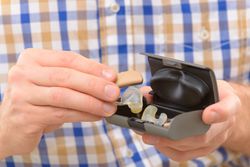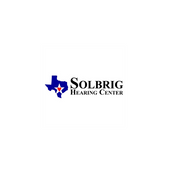
Although hearing aids are modern marvels of audiology, they still have routine maintenance requirements. The more diligent you are with upkeep, the longer and better your device will work. Below are a few tips to ensure these devices remain in optimal condition.
How to Care for a Hearing Aid
1. Prevent Wax Buildup
Wax accumulates naturally in the ear canal to capture dust and foreign objects before they go any further inside the body. While essential, this substance can clog up your hearing aids, minimizing the audio quality. To prevent this, use a cotton swab to clean these devices before bed each night. Focus on the receiver and the microphone, which will pick up the sound around you and transfer it into the ear canal. If you have wax filters, you should replace these according to the manufacturer’s recommendation.
2. Decrease Moisture Exposure
 Like other electronics, hearing aids don’t do well around water. Therefore, you should always remove them before bathing or swimming. If you happen to be in the rain, water-resistant models will survive, but you should find shelter and dry them with a towel as soon as possible. Also, keep track of the humidity inside your home. If levels rise above 50%, you may need a dehumidifier to extract water vapor from the air.
Like other electronics, hearing aids don’t do well around water. Therefore, you should always remove them before bathing or swimming. If you happen to be in the rain, water-resistant models will survive, but you should find shelter and dry them with a towel as soon as possible. Also, keep track of the humidity inside your home. If levels rise above 50%, you may need a dehumidifier to extract water vapor from the air.
3. Safeguard the Battery
Hearing aids are only as functional as their batteries, and like watches, you must eventually replace them. When removing the dead batteries, you should clean the battery contacts, which will improve the transfer of power. To help your batteries last longer, turn off your device whenever you don’t need to use them. When they’re off, open the battery compartment to allow any residual moisture to escape—this will prevent corrosion.
If you’re looking for new hearing aids or need a hearing test, reach out to Solbrig Hearing Center of Kerrville, TX. Their audiologists have over 15 years of experience, and they’re proud to help patients enjoy the sounds around them. Whether you’re having a hard time holding conversations or listening to music, you can find a solution by scheduling an evaluation. To learn more about their hearing instruments, visit the website, or call (830) 895-5900.
About the Business
Have a question? Ask the experts!
Send your question

